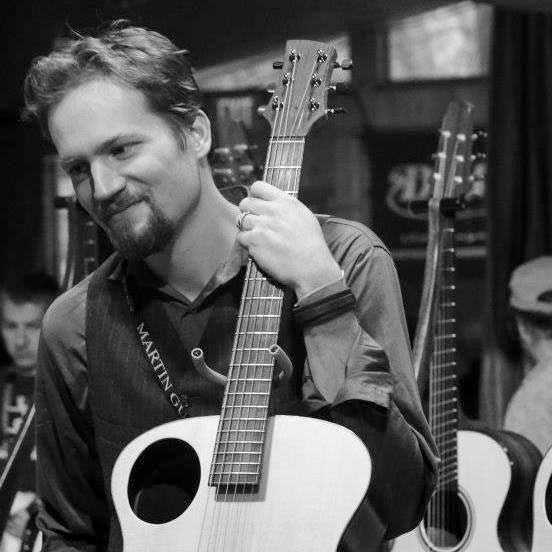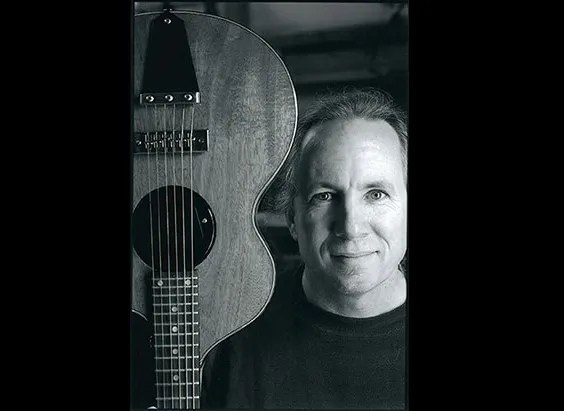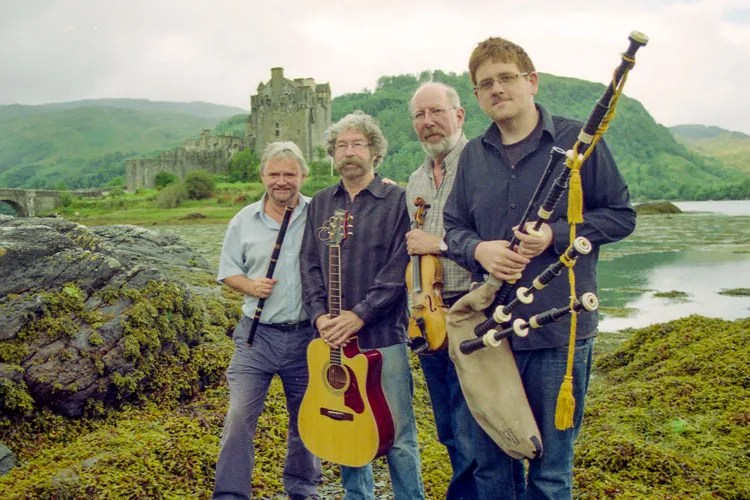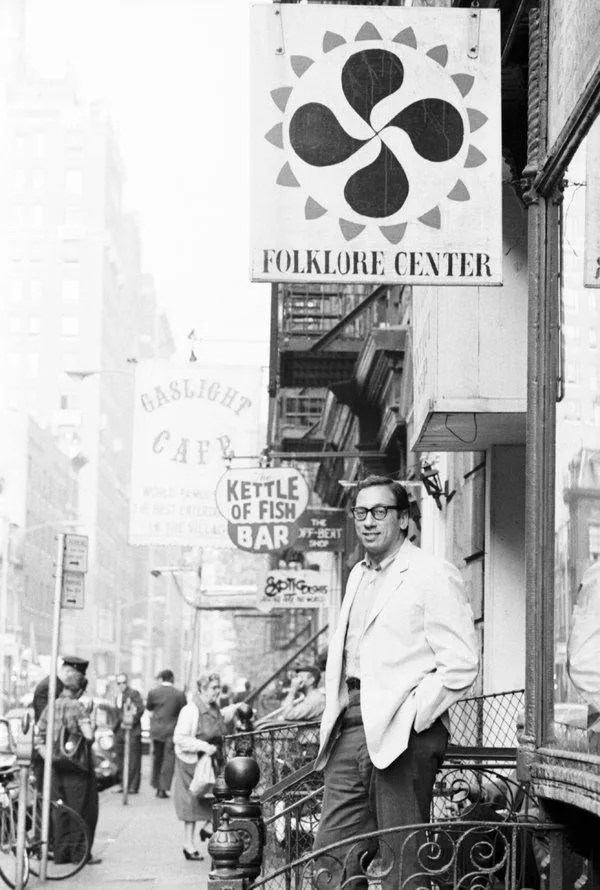Remembering Legendary Luthier Frank Ford, 1944–2023
The greatest repairpeople are those whose work is invisible. If done right, a perfect repair disappears completely, leaving behind nothing but a story. Last week, the community of luthiers mourned the loss of the great Frank Ford. The legacy Frank leaves behind is much greater than just the story of his work—it is also a legacy of community, innovation, education, and friendship.
A legendary repair luthier, Frank also co-founded the venerable Gryphon Stringed Instruments in Palo Alto, California, where he continued to work for the rest of his career as head of one of the country’s most esteemed instrument repair shops. Frank’s never-ending curiosity and ingenuity led him to create and refine techniques that have become standard practice in shops across the country. It’s easy to forget that the world of steel-string guitar is fairly young compared to that of the violin-family instruments—and thus, the techniques for repairing them have also evolved much more recently. Early solutions for neck resets and broken headstocks often did more damage than good, and many poor instruments suffered from these first-generation repair approaches. Frank was one of the foremost living bridges between the early, Wild-West days of guitar repair and today’s more sophisticated approaches—and, indeed, we have him to thank for many of the methods that have made modern repair more reliable, successful, and discreet.
ADVERTISEMENT
A self-taught machinist, Frank developed ingenious tools and mechanisms far beyond the average luthier’s repertoire. Unsatisfied with the low ratio of traditional banjo tuners, Frank developed a brilliant cycloidal gear tuner, preserving the classic appearance of vintage tuners while vastly improving their smoothness and accuracy. Not content to simply put up with the specifications of commercially available machines, he was quick to re-machine, modify, or in some cases completely redesign, these tools to better suit the task at hand.

For myself and countless other repair luthiers, one of Frank’s greatest contributions was his truly astounding website, Frets.com. Long before DIY website engines and digital cameras, Frank began photographing and documenting his most complex, unique, and challenging jobs, as well as the best examples of everyday repairs, creating an encyclopedic archive of photo essays that guide the luthier through all phases and nuances of the repair. His site remains one of the internet’s most valuable and complete resources on the many topics of guitar repair—and it illustrates perfectly one of Frank’s greatest gifts to our community: his pages teach not only the methods of repair, but also the theory and concepts behind those methods.
If a tool didn’t exist to do a particular job, Frank would design and build one, and document that process as well. As the saying goes, Frank taught us all how to fish—his lessons lead the reader towards ways of problem-solving that open doors well beyond the repair at hand. The site also includes shop tours and personal insights into his long relationships with other guitar builders and factories, illustrating the sense of community that is one of the hallmarks of modern American lutherie. Frets.com is a master class in instrument repair, and Frank gave it to the world without charging a dime.
As an employer, Frank was beloved by all who spent time in the Gryphon repair shop. Upon his passing, the universally shared sentiment was that Frank cared for his friends and colleagues as much as he did the vintage guitars that he so lovingly looked after. He leaves behind an enduring legacy of techniques, an immensely valuable and carefully documented body of knowledge, a community of admiring colleagues, and countless vintage guitars which might have been long-gone to history if not for Frank’s expert repair and restoration.
Frank’s work was done behind the scenes—indeed, many who brought their instruments to Gryphon for repair likely didn’t realize that he was one of the country’s very best. However, in repair shops everywhere, his memory and his creative spark will continue to help us all carry on the work he began when he opened Gryphon in 1969, keeping our guitars alive for the next generation. May he rest in peace.






Sorry to hear that this fine man is gone. I had spoken with him a time or two during my many visits to Gryphon and he was always interested and interesting. I love visiting the shop just to see all the wonderful and diverse instruments and accessories on sale, and seeing inside the workshop a few times made it all the better. So sorry Mr. Ford has passed. He will be missed.
I discovered Frank Ford through Acoustic Guitar Magazine. Frank replaced a badly abused tuner button on my otherwise pristine 1921 Gibson A4 mandolin (search for “Repair Technique/Tuning Gear Repair/Vintage Celluloid Tuner Button Transplant” on Frets.com). Hundreds of hours spent poring over his repair articles gave me the confidence to turn my boss’s 1949 015 Martin into an octave mandolin, my first real lutherie project. Frank was an “influencer” before there were influencers, and the content he created is invaluable. Rest in peace, Frank, and thank you for your service.
We lost another Hero……Rest in Peace brother
I had the great pleasure of meeting Frank when I lived in Northern California. I had an antique banjo that needed repair so Frank did the evaluation and did the repair himself due to how fragile it was. He was interesting, funny and did a great job. Frank will be missed.
To my great regret, I never had the pleasure of meeting Frank Ford. However, I’ve been aware of and grateful for his genius for years, mostly by way of Dan Erlewine & StewMac.
Frank, you’re missed already. Rest in Peace
I have never met Mr. Ford, but relied on him during phone conversations on a Santa Cruz 00 purchase. I live in rural Utah and have very limited access to high end guitars. He was patient and gracious with his time and expertise to advise me on what might suit my playing style and needs. I have loved the results of his advice and have always felt indebted to him. I am sorry to hear of his passing and am sending healing thoughts to his family and friends.
I first met Frank in 1974 when Gryhpon was located on El Camino Way. As I recall, he guided me in string selection. In the 1990s, Frank repaired my 1978 Guild 12-string after the end-pin suddenly failed and the guitar fell hard onto a cement floor covered only by a very thin rug. I felt a fool, even though the damage was accidental. Frank simply said, “This has happened to others. There is no reason to blame yourself.” And he made the guitar right again. I smile whenever I see his fine work restoring a section of the top and the binding at the lower bout. In 2012 that same instrument was subject to a violent assault by a person of my acquaintance. Once again, Frank made it right –actually better. He told me tragically amusing stories of other assaulted guitars he had repaired and once again he repaired my wounded sense of self, as well as my guitar. I mourn the passing of this great technician and a man of soul depth. Rest in peace, Frank.